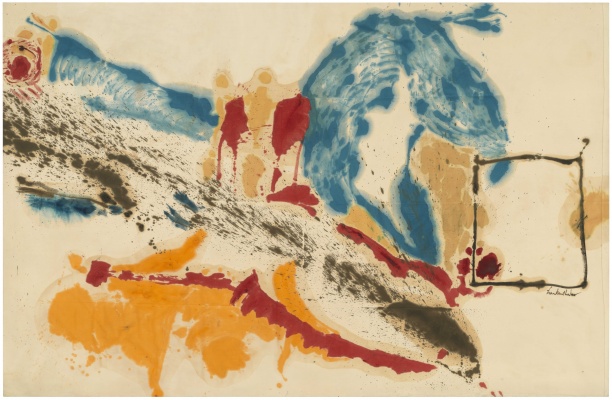Descripción de la Exposición
El trabajo de Falke Pisano (Ámsterdam, 1978) se desarrolla en proyectos a largo plazo, que ella concibe como campos de investigación, producción y reestructuración. Sus instalaciones exploran el estado de los programas de conocimiento y aprendizaje con la ayuda de estructuras diagramáticas y esculturas de formas abstractas.
En su última serie de trabajos, El valor de las matemáticas, Pisano examina la relación a menudo pasada por alto entre cultura y matemáticas. A través de esculturas, textos, diagramas y videos, investiga cómo los valores culturales occidentales, como el progreso, la racionalidad y la universalidad, han influido en la forma en que hemos llegado a pensar en las matemáticas. Mientras que algunas de las obras de la exposición cuestionan la posición pasada y presente de la "matemática avanzada", otras investigan la posibilidad de la existencia de múltiples formas de matemáticas. Hay piezas que se refieren al pensamiento, y otras a actos de producción, intercambio, medición, cálculo y navegación y cuestionan cómo los métodos y las prácticas varían en diferentes contextos. E
En conjunto, El valor de las matemáticas: cómo aprendemos nos conduce a lo largo del proceso de pensamiento de la artista, que se propone encontrar una respuesta a la pregunta “¿Existen múltiples matemáticas?” y descubre a lo largo del camino la importancia de examinar el marco heredado de pensamiento de cada uno.
Este proyecto se ha exhibido con anterioridad en REDCAT de Los Ángeles, Synagogue de Delme, Francia y Badischer Kunstverein , Karlsruhe. Falke Pisano ha participado en exposiciones en Kunstverein de Graz, Centro de Arte Dos de Mayo de Madrid, The Showroom de Londres, Museu d ́Art Contemporani de Barcelona (MACBA), Stedelijk Museum de Ámsterdam y Museo Nacional Centro de Arte Reina Sofía de Madrid, entre otros. Ha participado en la Bienal de Estambul en 2009, Manifesta 2008 y en la Bienal de Berlín 2008.
Falke Pisano is known for her long-term projects, which she conceives as organised fields of research, production, and re ection. Her installations explore the status of knowledge and learning programmes with the aid of diagrammatic structures and abstract sculptural forms.
In her latest series of works, The value in mathematics, Pisano examines the often overlooked relationship between culture and mathematics. Through sculptures, texts, diagrams, and videos, she investigates how Western cultural values, such as progress, rationality, and universality, have in uenced the way we have come to think about mathematics. While some of the works in the exhibition question the past and present position of ‘advanced mathematics’, others investigate the possibility of the existence of multiple forms of mathematics. The value in mathematics is divided in ten parts, each of which consists of a text panel and a visual component, most of them sculptural. While some objects refer to thought, others refer to acts of production, exchange, measuring, calculating, and navigating and question how methods and practices vary in different contexts.
In her new film Wonder Lands in Loxbridge (2016) Pisano turns to a specific European episode in the history of ‘advanced mathematics’, With the help of various texts, such as Lewis Carroll’s Alice’s Adventures in Wonderland (1865) and Ludwig Wittgenstein’s Lectures on the Foundations of Mathematics (1939), the film explores the different reactions to sense and non-sense in an era when the limits and possibilities of mathematics came under scrutiny.
As a whole The value in mathematics — How do we learn? leads us in steps along the thought process of the artist, who sets out to nd an answer to the question “Do there exist multiple mathematics?” and discovers along the way the importance of examining one’s inherited framework of thought.

Exposición. 11 abr de 2025 - 28 sep de 2025 / Museo Guggenheim Bilbao / Bilbao, Vizcaya, España

Formación. 08 may de 2025 - 17 may de 2025 / Museo Nacional Centro de Arte Reina Sofía (MNCARS) / Madrid, España